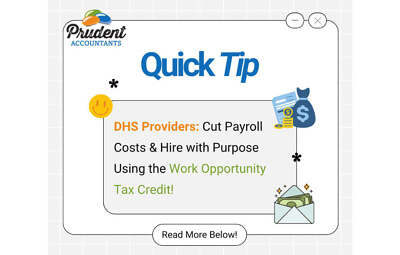Maximize Tax Savings with an Accountable Plan: The Smartest Reimbursement Strategy for Businesses

For business owners, every dollar saved in taxes is a dollar that can be reinvested into growth. Yet, many companies unknowingly overpay taxes by failing to structure their expense reimbursements properly.
Enter the Accountable Plan—a tax-efficient strategy that allows S-corporations and C-corporations to reimburse employees (including owners) for business expenses without those reimbursements being counted as taxable income. This means lower tax liabilities for both the company and its employees, creating a win-win scenario.
If your business pays for travel, meals, home office costs, or work-related expenses, an accountable plan is a must-have tool for reducing tax burdens and ensuring compliance with IRS regulations.
What is an Accountable Plan?
An Accountable Plan is an IRS-approved arrangement that allows businesses to reimburse employees (including owners) for work-related expenses without treating them as taxable income.
To qualify, the plan must meet three key criteria:
- Business Connection – The expenses must be directly related to the business.
- Substantiation – Employees must provide adequate proof, such as receipts, within a reasonable timeframe.
- Excess Returns – Any advances or excess reimbursements must be returned to the employer within a reasonable period.
Without an accountable plan, all employee reimbursements must be reported as taxable wages—increasing payroll taxes and reducing take-home pay.
Who Can Use an Accountable Plan?
- S-Corps & C-Corps – Eligible to implement an accountable plan and benefit from tax-free reimbursements.
- Business Owners (Without Employees) – Even if you’re a solo business owner with a corporation, you can still use an accountable plan to reimburse yourself tax-free.
- Sole Proprietors & Partnerships – Not eligible for accountable plans. Instead, expenses must be deducted directly on Schedule C (for sole proprietors) or Schedule K-1 (for partnerships).
How an Accountable Plan Saves Money: A Real-World Example
Imagine a C-Corporation, ConsultCo, that reimburses its consultants for work-related expenses.
Step-by-Step Breakdown
- Employee Incurred Expenses: John, a consultant at ConsultCo, incurs:
- $1,000 on travel
- $200 on meals
- Submission of Expense Report: John submits an expense report with receipts within 30 days.
- Company Reimbursement: ConsultCo reviews and reimburses John $1,200 tax-free.
- Tax Benefits:
- For ConsultCo (C-Corp Tax Savings): The $1,200 reimbursement is fully deductible as a business expense.
- Tax Savings: $1,200 × 21% (C-Corp rate) = $252 saved.
- For John (Employee Benefit): The $1,200 reimbursement is not counted as taxable income—so he doesn’t owe federal or payroll taxes on it.
Common Expenses Reimbursed Under an Accountable Plan
- Business Travel Costs – Flights, hotels, car rentals, mileage reimbursement.
- Meals & Entertainment – Business lunches, client meetings, team dinners.
- Home Office Expenses – Rent, utilities, internet (if applicable to work).
- Work-Related Supplies – Equipment, software, and other business necessities.
How to Set Up an Accountable Plan for Your Business
- Create a Written Policy – While not required, having a formal Accountable Plan Agreement on file helps protect your tax benefits in case of an audit.
- Reimburse from Business to Personal Account – Ensure reimbursements are properly documented and paid through the business account.
- Keep Proper Documentation – Require employees (including owners) to submit receipts, mileage logs, and other proof of expenses.
- Follow IRS Timelines – Expenses must be reported, and any excess reimbursements must be returned within a reasonable timeframe.
Key Tax Reporting Requirements
- For the Business:
- Total reimbursements are deducted as a business expense on Form 1120 (C-Corps) or 1120-S (S-Corps).
- No payroll tax reporting is needed, as reimbursements are not taxable wages.
- For Employees:
- Reimbursements do not appear on W-2s or personal tax returns.
- Employees must maintain records of expenses for IRS compliance.
What Happens If You Don’t Use an Accountable Plan?
- All reimbursements must be included in gross taxable wages.
- Both the company and employees will owe more in taxes.
- The IRS could disqualify your plan retroactively if reimbursements don’t meet guidelines.
Final Thoughts
An accountable plan isn’t just a tax strategy—it’s a smart financial move that allows businesses to maximize deductions while keeping reimbursements tax-free for employees.
By structuring your reimbursements correctly, you create a system that benefits both the company and the people who help run it.
As the saying goes, “It’s not about how much you make, but how much you keep.” An accountable plan ensures that more of your hard-earned money stays where it belongs—working for your business.








